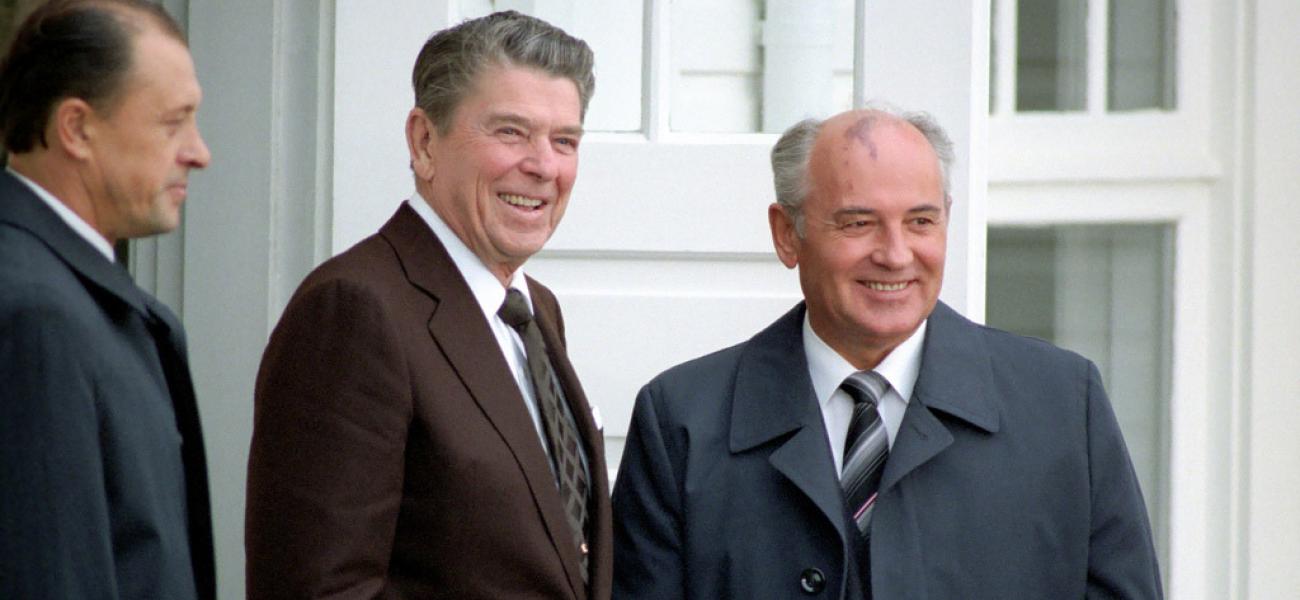In the Thick of It
A blog on the U.S.-Russia relationship
Remembering Reykjavik: On Path to INF Treaty, Some Levity and Warmth
As Donald Trump announces plans to pull out of a landmark 1987 arms-control treaty, one of its original signers, former Soviet leader Mikhail Gorbachev, has said the decision is not the work of “a great mind.” We will never know the opinion of the other signer of the Intermediate-Range Nuclear Forces Treaty, then U.S. President Ronald Reagan, because he died in 2004. But 32 years ago this month the two leaders met in Reykjavik, Iceland, for a summit that helped pave the way to the INF Treaty. And the discussions weren’t limited to serious matters of global security and “trust but verify.”
Here we share three moments of levity and camaraderie from Oct. 12, 1986, recorded in two U.S. memoranda on the day’s meetings, which have been made available through the efforts of the National Security Archive at George Washington University:
“The President had a different picture… Ten years from now he would be a very old man. He and Gorbachev would come to Iceland and each of them would bring the last nuclear missile from each country with them. Then they would give a tremendous party for the whole world. … He would be very old by then and Gorbachev would not recognize him. The President would say, ‘Hello, Mikhail.’ And Gorbachev would say, ‘Ron, is it you?’ And then they would destroy the last missiles.”
“Gorbachev expressed regret that there was not more time to address humanitarian questions. There were some specific concerns he had wanted to put before the President. … One question he did want to broach had to do with expanding the flow of information between the two countries. … Gorbachev pointed out that that half of the foreign films shown in the Soviet Union were American. Virtually no Soviet films were shown in the U.S. … The President replied that this was a function of the market rather than any attempt to ban Soviet films. … If the Soviet Union wanted to, it could do what other countries had done and form its own distributing company. If it could convince local theatres to show its films, fine. But the [U.S.] government could not order them to.”
“To illustrate his point, the President began a quote from Marx, prompting Gorbachev to observe jocularly that the president had dropped Lenin for Marx. The President countered that Marx had said first much of what Lenin said later. … Gorbachev had no desire to quarrel. He was convinced, in fact, that, while he and the President might have different characters and conceptions, a man-to-man relationship between them was possible. The President said he looked forward to welcoming Gorbachev at one point as a new member of the Republican Party.”
Photo from the Ronald Reagan Library shared under a CC BY 2.0 license.
The opinions expressed in this commentary are solely those of the author.

